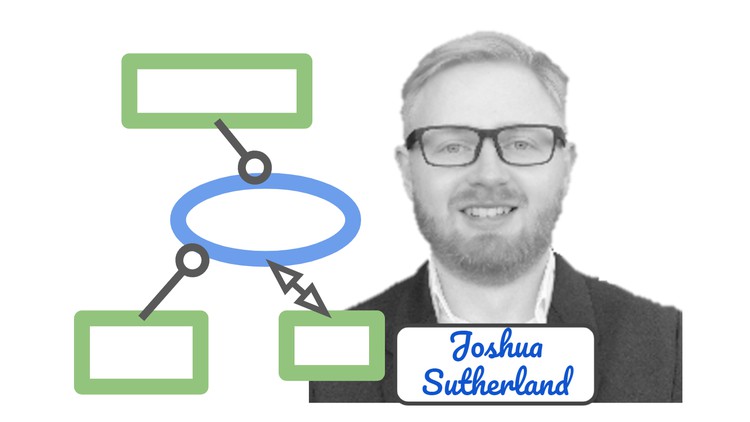Object Process Methodology (OPM) for MBSE

Why take this course?
🎓 Course Headline: Master Object Process Methodology (OPM) for Model Based Systems Engineering (MBSE) 🚀
Course Title: Object Process Methodology (OPM) for MBSE
Course Description by Joshua Sutherland:
Hey there, future systems engineering gurus! 🌟 I'm Joshua Sutherland, and I'm thrilled to guide you through the intricacies of Object Process Methodology (OPM) for Model Based Systems Engineering (MBSE). This isn't just a course; it's a transformative journey into the world where logic meets design in the realm of engineering systems.
The Essence of MBSE: OPM is a powerful tool within the ambit of MBSE, which allows engineers to craft a comprehensive and logical description of the systems they design. It's not just about creating models; it's about doing so with precision, purpose, and clarity.
Key Components of OPM:
- Systems Engineering: The backbone that ensures the successful lifecycle of engineered systems.
- Model Based Systems Engineering (MBSE): The practice of using a consistent model to manage complexity and deliver system requirements.
- Purpose, Methodology, Language, Tool: The essential elements required to build your MBSE model.
- OPM: A conceptual modeling language that combines diagrams and text to describe systems with unparalleled clarity.
Building Blocks of OPM:
- Objects: The fundamental building blocks that represent entities within the system.
- Processes: The activities that define how objects interact and evolve over time.
- States: The conditions in which objects exist, providing context to the system's operation.
Linking the Elements: In OPM, we link these building blocks together to create a comprehensive model of your system, ensuring every aspect is accounted for and interconnected.
Who Should Take This Course?
This course is designed for a wide array of individuals with varying interests and professional backgrounds. Here's who will benefit the most:
- Aspiring Engineers: If you're passionate about logical design and technical products, this course is your stepping stone to mastery.
- Systems Enthusiasts: For those who love delving into the intricacies of systems, OPM provides a new perspective.
- MBSE Practitioners: Whether you're a beginner or an experienced engineer looking to expand your toolkit, this course will elevate your skills.
- OPM Aficionados: If you're already familiar with OPM, this course will deepen your understanding and application of the methodology.
- Communication Seekers: Engineers who wish to enhance their communication abilities through new languages and modeling techniques will find immense value here.
I've had the privilege of applying OPM across diverse industries, from Japan to Great Britain, and I can attest to its transformative power. It's one of my personal favorites for describing and designing systems, and I'm excited to share this approach with you. 🌐
As you embark on this course, know that I'm here to support your journey, whether it's for personal development or to revolutionize the way you approach business challenges. Let's explore the potential of OPM together and discover how it can elevate your systems engineering practice to new heights!
Good luck, and I look forward to seeing the incredible innovations you will create with the knowledge from this course. Let's make MBSE a breeze! 🎓💡
Loading charts...